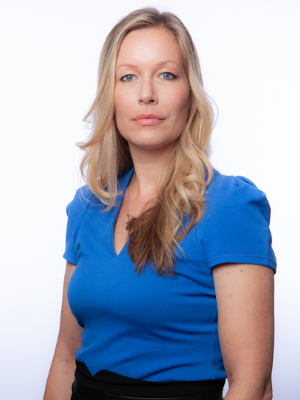 Many companies focus myopically on International Women’s Day. This year #BreaktheBias and
gender and climate are the annual themes, depending on your source. But, as founder and fifteen
years in here at theglasshammer, it is hard to believe that these slogans and themes that come and
go every year create any change at all. People wants Acts, Not Ads from companies, and
professional hard-working women are tired of the lip service and want to see the talk, walked.
Many companies focus myopically on International Women’s Day. This year #BreaktheBias and
gender and climate are the annual themes, depending on your source. But, as founder and fifteen
years in here at theglasshammer, it is hard to believe that these slogans and themes that come and
go every year create any change at all. People wants Acts, Not Ads from companies, and
professional hard-working women are tired of the lip service and want to see the talk, walked.
As we enter year three of the global pandemic, with so many of us doing extreme amounts of work, and some of us also still balancing childcare with covid related closures of daycares and schools, isn’t it time to ask ourselves how can professional women and men (and especially anyone who has second and third shifts with kids and aging parents) do balance and self-care, better? What matters? And what role do firms have in creating the workplace of the future that we are ready to be in, now? This International Women’s Day, the manifesto should be to take a day off. Tomorrow the work will still be there!
Overwork and Burnout
There is work and then there is overwork. Chances are if you are reading this article, you have spent at least some of your career in the overwork zone. You probably work in financial, legal or professional services, in technology firms, big pharma, manufacturing, media or Fortune 500. You are probably a go-getter, highly ambitious and very successful. You probably have engaged some of the usual methods and possess some of the characteristics often needed to get to the top, including old fashioned hard and long work, a competitive nature, cognitive smarts, higher than average EQ to read the room, and a belief that improvement is always possible. Possibly three generations of professional women are reading this article with similar, yet evolving, culturally programmed definitions of success regarding wealth, status and career ladder climb concepts.
Is the extreme achievement mindset in sync with your life goals, your health and mental wellness? Is overachievement about meeting other people’s standards or earning your worth?
Dr. Devon Price, like many of us, came to his senses regarding extreme productivity after a health emergency. He insists that we should stop valuing ourselves in terms of our productivity at work. In the book, Laziness Does Not Exist, he affirms that ‘we don’t have to earn our right to exist’ with overwork and endless achievement.
Advice includes to listen to your body and to forget grinding away all the time to meet arbitrary standards. By reframing what being ‘lazy’ means, versus the allure of validation through achievement, a healthier, happier you can emerge.
“Laziness is usually a warning sign from our bodies and our mind that we need a break.”
In an interview with NPR, he discusses why we rationalize working so hard, and how asking for help, and helping others to helps us, prevents tiredness from overwork but also facilitates us to be better , due to feeling less exhausted as “our brains take micro-naps either way.”
It isn’t just you.
In several recent studies, isolated overwork came up as the most demotivating factor and biggest reason people are quitting jobs. This isn’t new news. Back in 2017, Inc magazine reported on employees quitting when leaders overwork people, show zero empathy and don’t respect time when people are out of the office living their lives, but it is further accentuated by the pandemic. Microsoft conducted an employee indexing survey of 30,000 that resulted in a study called “The Next Great Disruption is Hybrid Work – Are we Ready?”
By looking at trends including desire for flexible work and hybrid structures, the study reiterated what their CEO Satya Nadella called the hybrid work paradox. This study reveals that while people want more flexibility and remote options, they also seek deep human social connection. The same study reveals that high productivity is masking employee exhaustion and overwork. It states measurable uptick over the course of the year – February 2020 to February 2021 – on volume of emails sent, 66% increase on people working on documents, and meeting usage on teams increased in volume and time on meeting applications.
Uncovering your own Competing Agendas
Isn’t it time you figured out what you want for you? Start with your values. Take a look at what matters to you on this worksheet – literally, pick ten words that mean the most and then rank them 1-10, with one being what you value most. Are your actions matching your values? Are you living a humdrum existence while your top value is adventure? Are you spending fourteen hours a day at work when your top value is family? Now is a great to re-evaluate what matters to you. Be yourself, everyone else is taken as the adage goes.
If you had trouble thinking about how all of this meets reality, or deciding what your values are , or felt conflicted, that is part of the journey too. Hyper achievement and superhuman productivity are sometimes part of deep developmental gremlins that have made their way into our heads over time, so we can’t see any other way to be, making them our base operating system with everything else being an app on top. Kegan and Lahey, Developmental psychologists at Harvard, really have a superb method in their book, Immunity to Change, to help you figure out what your unconscious mind is doing to you while you happily goal set in your conscious mind all day long regarding work, fitness and home life. We are all a product of whatever beliefs and paradigms that we have accumulated throughout our life and if your granny/dad/mother/friend told you words to live by, chances are you are doing just that, implicitly following some guidelines without even knowing.
What are your saboteurs? There is another easy way to find out what is going on inside your own head by taking this short quiz on “How we self-sabotage” by Positive Intelligence. It is key to understand what is going on with yourself and what your self-talk is likely to be telling you. Let’s start with the gremlins. If you have something like hyperachievement as your top saboteur, then it is likely you will justify the overworking with sentences like ‘I must be effective and efficient, and ’emotions get in the way of performance.’ Or if you have a high control saboteur, you might be telling yourself things like, ‘well if I don’t do it, who will?’ Or, that people need people like you to get the job done. Show yourself some compassion and a great book to understand how to even begin to approach such a daunting task is Radical Compassion by Tara Brach. It is normal to feel your feelings and that includes joy.
In short, honor yourself on International Women’s Day by taking stock of what matters to you now, and how closely your own life feels aligned to that.
We are starting a Spring coaching cohort in May for sustainable success in 2022. Cost is $3,999 per person and includes a yearlong program with 6 sessions of executive coaching, peer coaching and career development training. Limited spots, contact nicki@theglasshammer.com and write spring coaching cohort in the title of the email.
By Nicki Gilmour, Founder and CEO of theglasshammer.com
Nicki founded theglasshammer in 2007 to inspire, inform and empower professional women in their careers. We have been the leading and longest running career advice online and in person media company in the USA for professional women in financial services.



